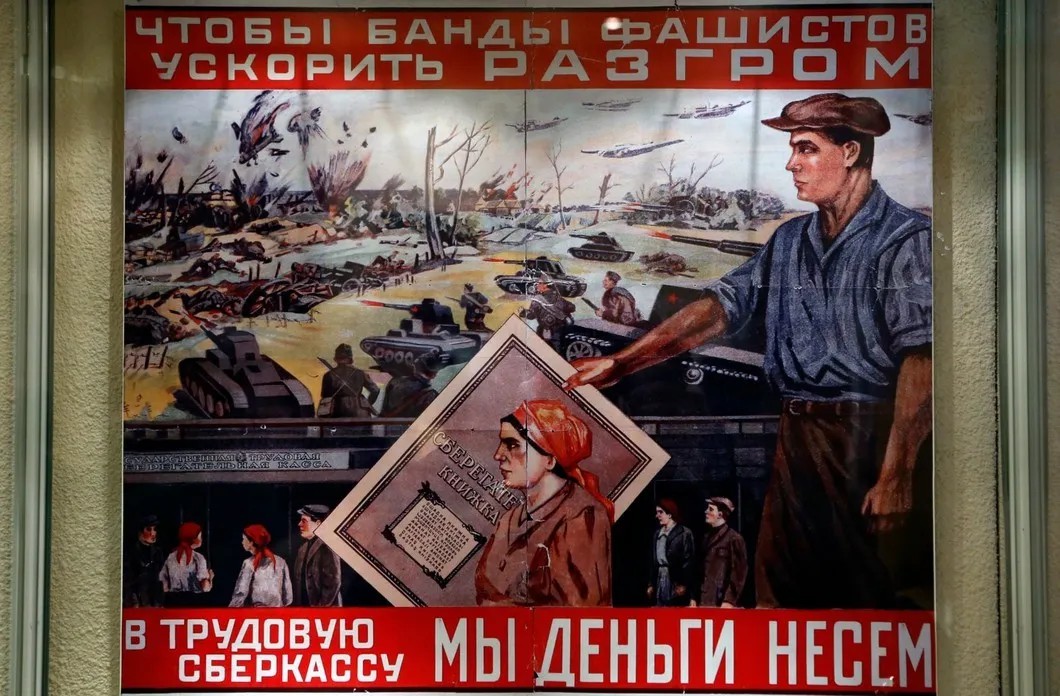
This Week’s Highlights
We separate the real numbers from the fraud in Russia’s recent constitutional referendum; we look into the killing of 23-year-old Madina Umaeva that shook the country and what does it say about the poor state of safety for women in Russia; we explain how Russians are being forced to pay for the Covid-19 crisis; plus, we bring to light two high profile cases that illustrate the Kremlin’s crackdown on citizen freedoms.
Want to get the full story? Click the links below for full-length articles in Russian.
Russia’s Rigged Constitutional Vote, Explained
Russia has just had a historic vote that allows Putin to prolong his rule until 2036. We explained it in an extra edition last week. This week we investigate the claims about the vote being falsified. Our analyst Sergey Shpilkin uses data analysis tools to pinpoint where the falsifications took place.
THE FIRST INDICATOR. We’ve spotted a gap between the officially published tally and the number of polling sites that would have issued the results close to that. In other words, when you analyze results at individual voting stations, they don’t support the ceiling set by a nationwide counting result, provided by officials.
THE SECOND INDICATOR. We’ve also identified two distinct groups of polling sites based on their filed results. One is smaller and shows a 42% turnout with 65% of ‘yes’ votes. The second group is much bigger, with a trajectory towards a 100% percent turnout and a 100% ‘yes’ vote.
GOOD-OLD BALLOT STUFFING.Our analyst Sergey Shpilkin thinks that the second group resembles a familiar in Russia pattern — it’s what election results look like when additional votes are thrown in for the ‘right’ candidate, boosting turnout and the desired result. Shpilkin concludes that the first group shows us the referendum results closer to reality.
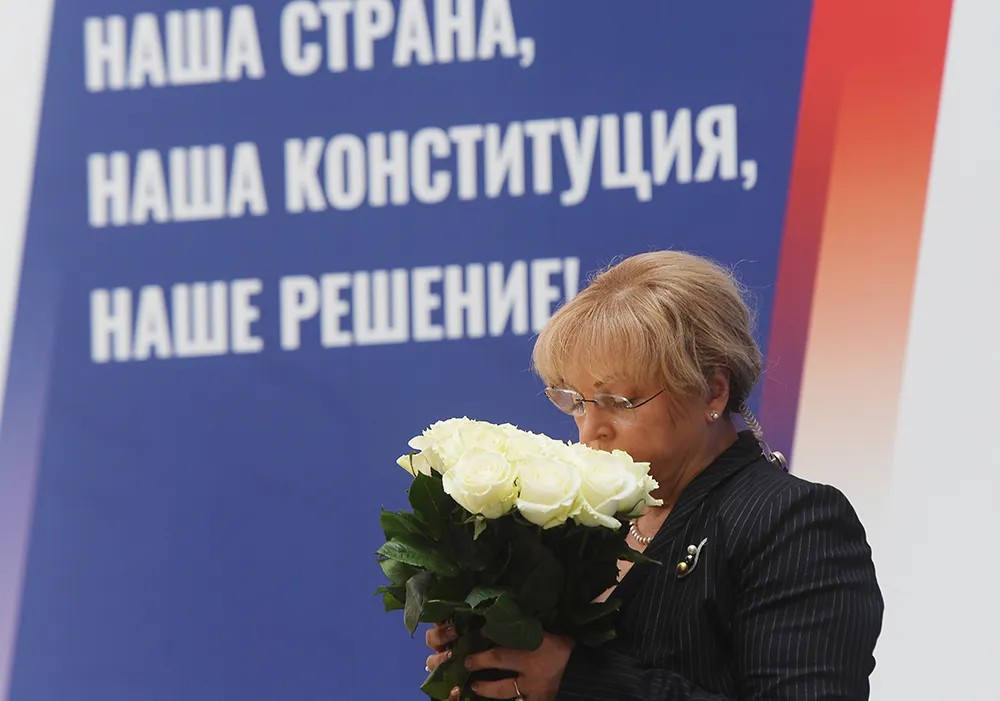
EARLY VOTE ABUSE.Both indicators speak to the changing attitude of Russian officials towards vote-rigging, argues our columnist Kirill Rogov. If before the most falsifications were done on a single election day by ballot stuffing, now the officials utilize new and expanded early voting procedures for the same purpose.
BUT WHERE DID THE OFFICIAL ‘78%’ COMES FROM?According to independent polling, just 25% of Russians supported pro-longing Putin’s rule, while 40-50% were planning to vote in favor of his power-grabbing amendments. How so? Rogov argues that while Russians were generally against 16 more years of Putin, the public just wasn’t ready to defend this stance. This allowed the Kremlin to capitalize on the passive attitude, categorize it as tacit support and come up with an official 78% result that is not entirely out of this world.
THESE RESULTS TELL US TWO THINGS.One that Putin’s popularity has plummeted and two is that the potential for social resistance is currently low. This will allow the Kremlin to further repression and restrictions. And that’s the real result of the vote, says Rogov.
Check out the data behind the vote hereand read Kirill Rogov’s full take on the vote here.
The Killing of Madina Umaeva, Explained
The suspicious death of 23-year-old Madina Umaeva in the Southern Russian region of Chechnya sparked anger and calls for justice both at home and abroad. Human rights groupssay the case is the latest example of domestic violence going unpunished in Russia. Our correspondent Elena Milashina dug deep into the story.
MADINA ENDURED YEARS OF VIOLENCE. Madina was married to Viskhadzhi Khamidov at the age of 16 and suffered violent beatings during their seven-year marriage. In the latest incident in June, Madina’s in-laws say the woman fell down the stairs after an epileptic seizure and died. But there is no record of the woman having epilepsy. Furthermore, neighbors said they heard screaming coming from the house on that day.
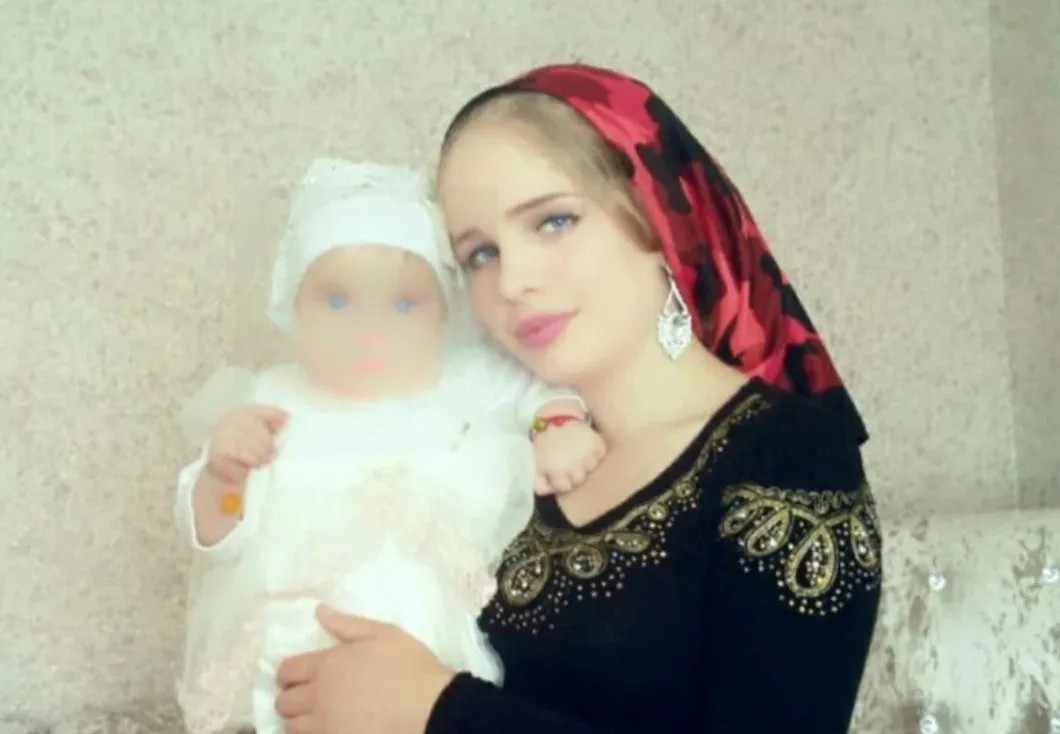
MIDNIGHT FUNERAL.Madina’s funeral was hastily organized for the same night. It contradicted centuries-old Chechen traditions, which dictate that the dead must be buried before sunset. With the funeral held so quickly, her family was unable to view the body, and no autopsy was conducted. After the family spoke out to the press, the incident sparked a public outcry. It forced local officials to do an exhumation. Madina’s mother said she was present at the autopsy and saw a wound on the body.
OFFICIALS BACK THE MURDERER.Madina’s husband has links to Ramzan Kadyrov, the region’s thuggish leader whose dictatorial rule exists under the direct patronage of Vladimir Putin. The man worked at a training center for Chechnya’s special forces, run by Kadyrov’s cousin Abdul-Kerim Kadyrov. Responding to a public backlash, Kadyrov confronted Madina’s mother in a televised meeting where he shamed the family for insisting on exhumation and justified domestic violence.
“If she married once, gave birth to children, a woman should cherish this marriage. Fights happen, beatings happen. A mother also beats her child when she scolds and educates,” Kadyrov stated during the broadcast.
HUMILIATED AND THREATENED. Kadyrov then threatened and forced the mother to apologize on camera. Human rights groups condemned this move by authorities, saying it will block much-needed justice and deter others from seeking help.
BACKSTORY.Russia partially decriminalized domestic violence in 2017, but gender-based violence had been an ongoing problem in Kadyrov’s Chechnya long before that. Rights groups say women are often subjected to beatings, forced marriage, and honor killings. Gendered violence is part of the overall regime of terror in the region under the corrupt Kadyrov leadership. It fuels monstrous income inequality, as well as the worst human rights violations in the country. Moreover, femicide remains prevalent across Eastern Europe, where patriarchal structures are still widespread, and law enforcement often treats domestic violence as a family matter. Violence in the home is often normalized, leaving many women fearing to seek help.
Read our full investigation into the killing of Madina Umaeva here.
Поддержите
нашу работу!
Нажимая кнопку «Стать соучастником»,
я принимаю условия и подтверждаю свое гражданство РФ
Если у вас есть вопросы, пишите [email protected] или звоните:
+7 (929) 612-03-68
Russia’s Regional Covid-19 Woes Continue
Russia still has one of the largest Covid-19 outbreaks in the world, with nearly 700,000 cases. Authorities have been easing restrictions for weeks in the lead-up to the constitutional vote, and cases are officially on the decline, with some 6600 new infections recorded daily. Yet regions are reporting outbreaks and bed shortages.
CASES ON THE RISE.In the Arctic region of Murmansk, the number of cases is growing steadily. It is the third-highest per 100,000 people in the country. Amid a growing caseload, health care workers are also dealing with a shortage of beds. But regional authorities are in denial. Last month, a regional governor announced that Murmansk was among the regions putting up ‘the best fight against coronavirus.’
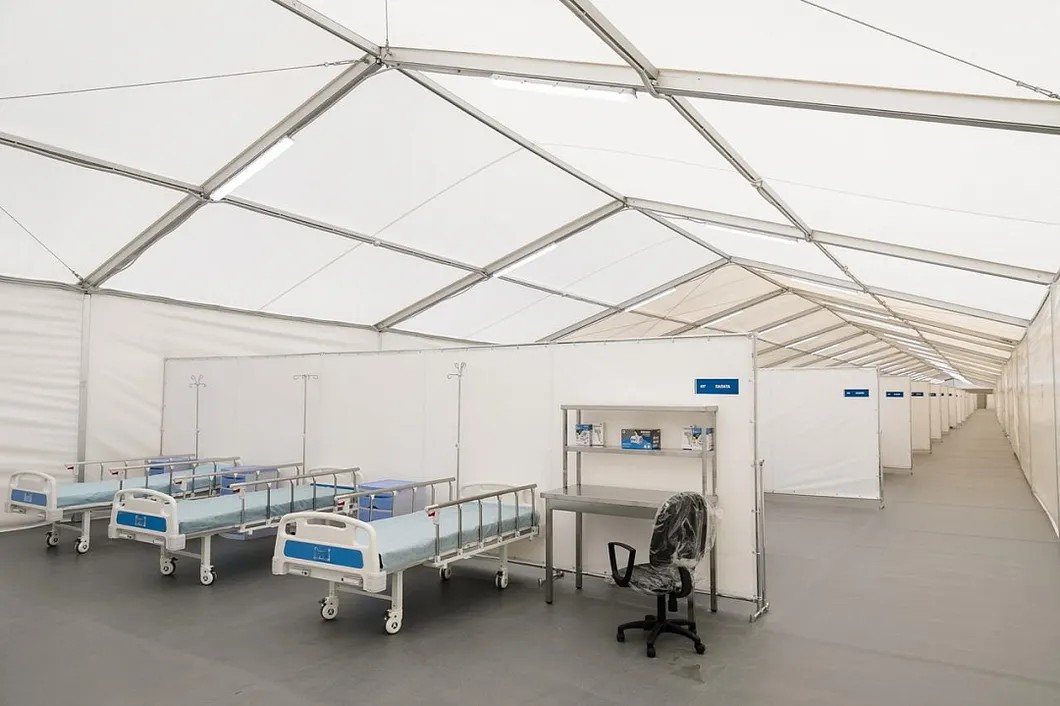
HOSPITAL BUNGLE.A 700-bed mobile hospital is built some 40km from the region center, but it doesn’t have a single patient. That’s because it has been deemed a safety risk and doesn’t comply with fire safety requirements. While this facility stands empty, around 1000 coronavirus patients are squeezed into city hospitals, where only 300 Covid-19 beds are allocated.
AND THIS IS JUST THE FIRST WAVE.Authorities may be overly optimistic about Russia’s Covid-19 progress. In one of our regular live social media broadcasts with Covid specialists, molecular biologist Irina Yakutenko warned that Russia is still well in the grips of the first wave.
“Europe can speak about the end of the first wave, where the number of cases is in the dozens, or Southeast Asia or China, where there were no new cases at some point. We will only know when there will be a second wave and what to do next in August - when schools open in Europe. Russia is behind by about a month - that’s when we will know approximately which way the virus went. And there won’t be a vaccine by this point,” says Yakutenko.
MORE BAD COVID MANAGEMENT.In another sign of poor pandemic management, Russian authorities decide to restart flights to neighboring Central Asian countries. The decision comes despite the onset of a second pandemic wave in Kazakhstan and Kyrgyzstan. The former re-introduced nationwide lockdown after a seven-fold increase in new infections.
Read the full story on Murmansk’s failed hospital here and read about the worsening Covid-19 crisis in Central Asia here.
How Russians Will Pay For The Covid-19 Crisis
More than 3.5 million Russians or 5% of all workers have lost their jobs during the quarantine. And that's official figures, which do not include millions more working in the informal economy. But instead of unemployment support, the Kremlin wants them to pay their way out of misery on their own.
SOVIET TRICKS.The Kremlin is bringing back an old Soviet tactic of forcing the victims to pay for the cataclysmic fallout. In this week's op-ed, our economy columnist Dmitry Prokofiev remembers World War II when to pay for the war devastation Moscow took money out of people's pockets by upping taxes and freezing bank accounts. Much like during wartime, the Russian public will be paying for the Covid-19 crisis, too.
PRODUCTION UP, SALARIES DOWN.Earlier, the government unveiled a bizarre anti-crisis plan. It envisions citizens paying for the crisis by agreeing to provide cheap labor to boost large enterprises' profit margins. Prokofiev points out that the idea is now successfully working. In early July, Russia's manufacturing activity index reached its annual maximum against the background of lower wages and a decrease in employment.
DECENT PAY IS A RISK TO RUSSIA.Prokofiev argues that this shouldn't come as a surprise. More than a decade ago, economist and future deputy prime minister Andrei Belousov published an article that identified people's desire for a decent salary and quality goods as a risk for Russia. Belousov is now leading the government "restoration" of Russian industries.
BACKSTORY.More than 21 million people in Russia are living below the poverty line. Some 60% have no savings, and many are facing debt.Meanwhile, incomes have been falling for years, and experts predict that after the pandemic, Russians will be about 10% poorer than a decade ago.
Read Dmitry Prokofiev’s full op-ed here.
Other Top-Stories Russia Has Been Reading
- JOURNALIST CONVICTED ON “BOGUS TERRORISM CHARGES”. Svetlana Prokopyeva is fined around $7000 amid outcry over fabricated case. Authorities started targeting Prokopyeva last year for her critical stance on the government and its security services. Last July, she was placed on a list of “terrorists and extremists.” This was the first high-profile case in Russia when prosecution demanded a real prison term for a journalist doing their job. “Repression develops gradually,” Prokopyeva stated just before her sentencing. “It is impossible to predict when the restriction of rights and the prosecution of dissent will turn into concentration camps and executions. That is why freedom of speech is needed - to sound the alarm in time. Independent media, journalists, opposition politicians and activists are needed to promptly say to the ruling majority: Hey, take a look around! You’re on a slippery slope! That is why the state has always been and will be the main object of criticism for the media - a power system with a coercive apparatus that can become an instrument of mass repression. I am not afraid to criticize the state. This is not a crime.”
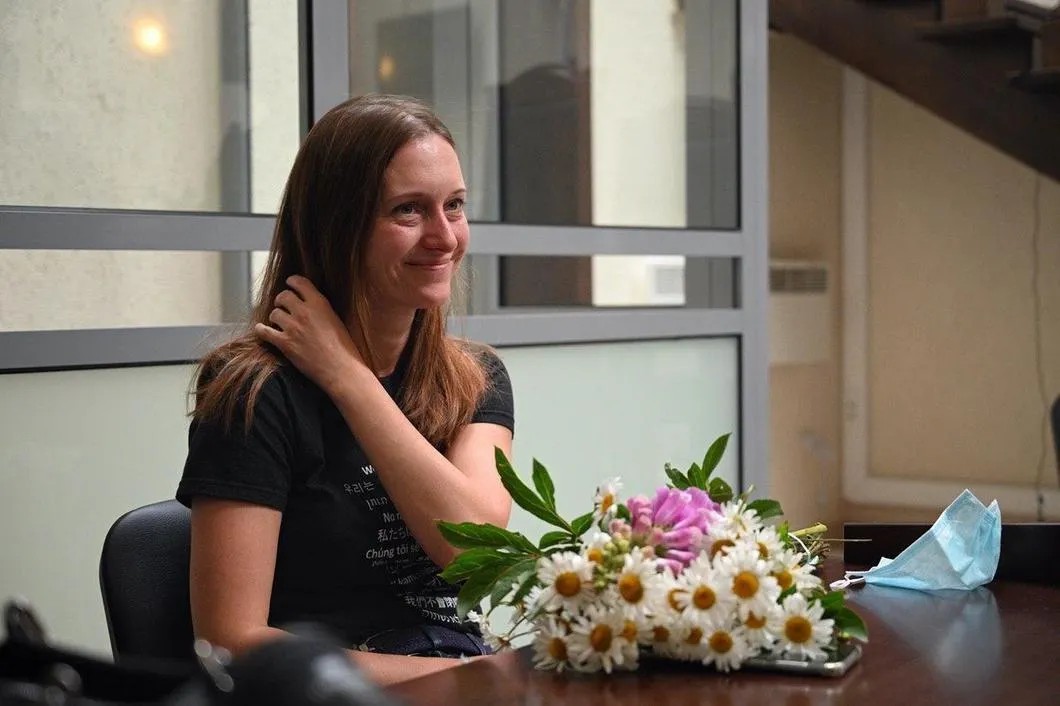
- PROSECUTED FOR A PICTURE.Another high-profile case that we're covering this week is the persecution of a queer artist Yulia Tsvetkova. She is accused of disseminating "criminal pornography" and "gay propaganda" after posting abstract drawings of vaginas on social media. Tsvetkova is currently under house arrest and faces six years in prison. In an unprecedented public show of solidarity for LGBTQ+ rights, hundreds rallied in her defense across Russian cities, police detained dozens. In a live social media broadcast, we offered a platform to four prominent Russian feminists to discuss the Kremlin's latest crackdown on women's rights. "If Yulia is given a real term, it will be the point of no return. And not only for me. [This will be] the signal to look for real ways to leave Russia. This will have great consequences because a feminist agenda is now needed in our country," says activist Daria Serenko. "The persecution of artists and activists [shows] a desire to turn us all back, stop time, and not let us finish. There is a feeling that we are going through a portal. It should lead to the future, but halfway into this portal, we are constantly pulled and held by our necks' scruff. This is facilitated by amendments to the constitution and the political reality in which we live. Tsvetkova's case has been completely fabricated by the security forces; I think that it should be stopped. An image of the body is not pornography; activism is not extremism."
Thanks for reading!To keep up with Novaya Gazeta’s reporting throughout the week, you can follow us on Facebook, Twitter, Instagram, and Telegram. Our video content is available on Youtube and don’t forget to visit our website for the latest stories in Russian.
— The Novaya Gazeta Team
Поддержите
нашу работу!
Нажимая кнопку «Стать соучастником»,
я принимаю условия и подтверждаю свое гражданство РФ
Если у вас есть вопросы, пишите [email protected] или звоните:
+7 (929) 612-03-68